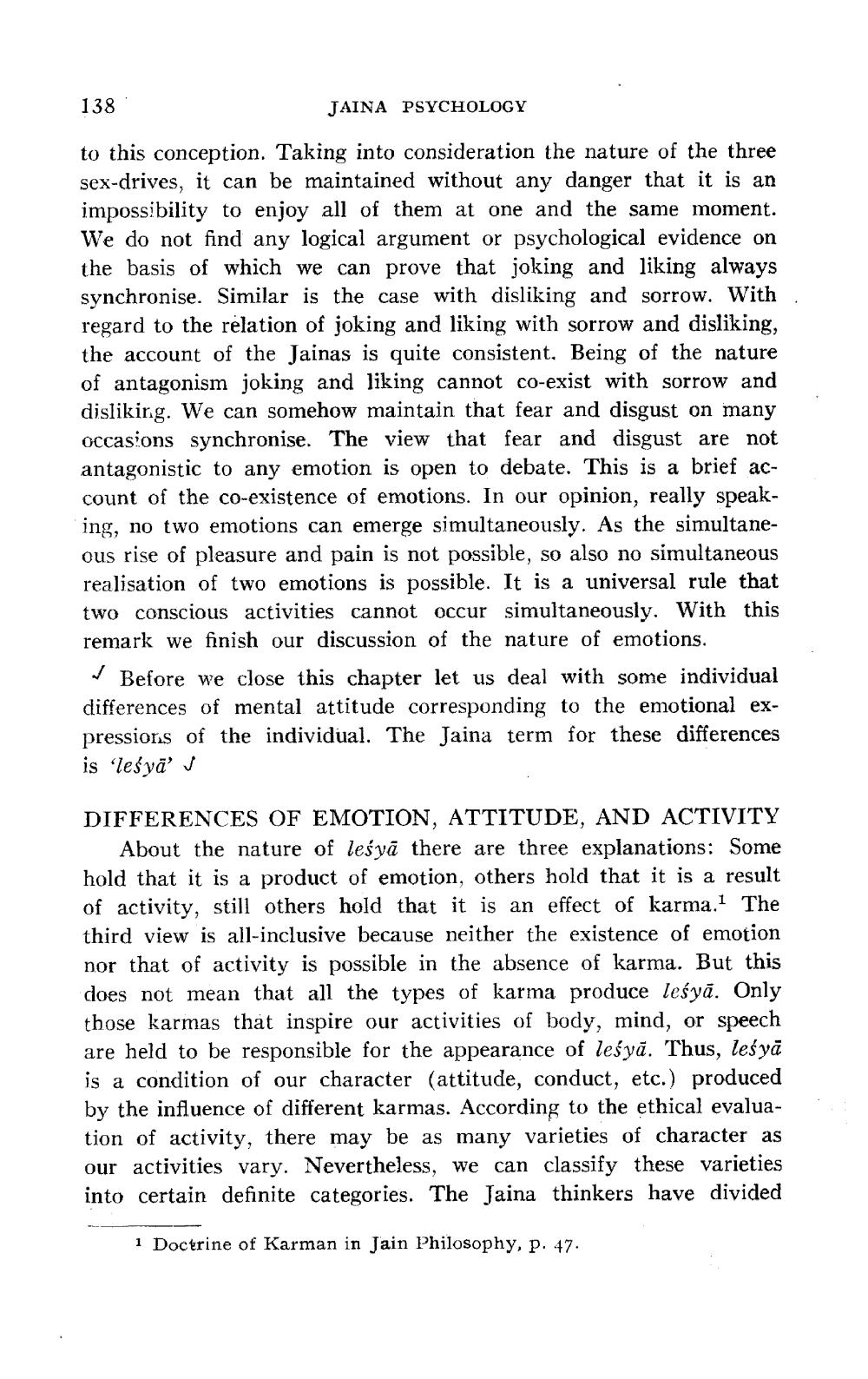________________
138
JAINA PSYCHOLOGY
to this conception. Taking into consideration the nature of the three sex-drives, it can be maintained without any danger that it is an impossibility to enjoy all of them at one and the same moment. We do not find any logical argument or psychological evidence on the basis of which we can prove that joking and liking always synchronise. Similar is the case with disliking and sorrow. With. regard to the relation of joking and liking with sorrow and disliking, the account of the Jainas is quite consistent. Being of the nature of antagonism joking and liking cannot co-exist with sorrow and dislikirg. We can somehow maintain that fear and disgust on many occasions synchronise. The view that fear and disgust are not antagonistic to any emotion is open to debate. This is a brief account of the co-existence of emotions. In our opinion, really speaking, no two emotions can emerge simultaneously. As the simultaneous rise of pleasure and pain is not possible, so also no simultaneous realisation of two emotions is possible. It is a universal rule that two conscious activities cannot occur simultaneously. With this remark we finish our discussion of the nature of emotions.
✓ Before we close this chapter let us deal with some individual differences of mental attitude corresponding to the emotional expressions of the individual. The Jaina term for these differences is ‘leśyā v
DIFFERENCES OF EMOTION, ATTITUDE, AND ACTIVITY
About the nature of leśyā there are three explanations: Some hold that it is a product of emotion, others hold that it is a result of activity, still others hold that it is an effect of karma. The third view is all-inclusive because neither the existence of emotion nor that of activity is possible in the absence of karma. But this does not mean that all the types of karma produce leśyā. Only those karmas that inspire our activities of body, mind, or speech are held to be responsible for the appearance of leśyā. Thus, leśyā is a condition of our character (attitude, conduct, etc.) produced by the influence of different karmas. According to the ethical evaluation of activity, there may be as many varieties of character as our activities vary. Nevertheless, we can classify these varieties into certain definite categories. The Jaina thinkers have divided
1 Doctrine of Karman in Jain Philosophy, p. 47.




